
Awardees
2023 Research Incubator in Climate & Health Awardees
The Office for Research is pleased to announce the seed funding awardees through its Research Incubator in Climate and Health! Congratulations to all of our team pilot and early career awardees!
Accordion Content
-
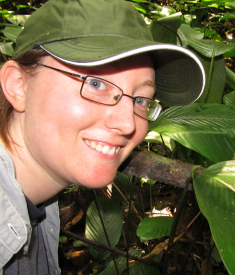
School: School of Arts & Sciences
Department: Genetics
Unit: New Brunswick
Award Type: Early Career Award
Project Description: Climate change is expected to cause an increase in mosquito-borne diseases such as malaria by, for instance, lengthening the transmission season. This could lead to a rapid rise in disease burden in regions that previously had low transmission rates, like tropical highlands. However, baseline data on mosquitoes in these regions is scarce. To address this gap, we are undertaking longitudinal sampling of mosquitoes across altitudinal gradients in Madagascar's montane tropical rainforest, combining environmental information with mosquito and pathogen data. By gathering data across seasons and altitudes, we hope to better understand the ecological drivers of disease dynamics and ultimately protect vulnerable populations from mosquito-borne diseases. -

Benjamin R. Lintner, Lead PI
School: SEBS
Department: Environmental Sciences
Unit: New Brunswick
Award Type: Team Pilot Award
Team Members:
• Amy Savage (Biology, RU Camden)
• Jose-Guillermo Cedeno Laurent (Environmental and Population Health Biosciences, RU New Brunswick)
• Hao Wang (Civil and Environmental Engineering, RU New Brunswick)
• James Shope (Environmental Sciences, RU New Brunswick)
• Ruo-Qian Wang (Civil and Environmental Engineering, RU New Brunswick)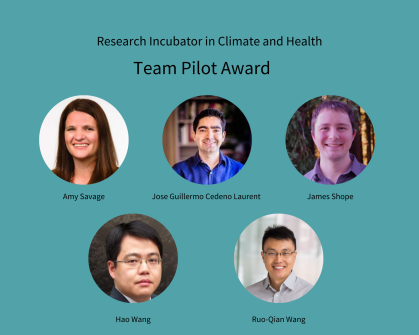
Project Description: Efforts to ensure the health of human and natural components of urban areas to extreme heat require comprehensive, process-based knowledge and quality data. To that end, the overarching goal of our project is to assess how extreme heat events impact human and natural community health across the urbanized mosaic of New Jersey. Our specific objectives include:- Collecting and synthesizing existing and new environmental, public health, and urban ecosystem data sets that inform understanding of heat impacts on urban communities
- Quantifying the spatial and temporal variability and scales at which human and natural communities experience chronic urban heat and extreme heat wave events
- Assessing the efficacy of greenspaces and green-gray infrastructure in mitigating the negative consequences exposure to extreme heat on human and natural communities in cities
-
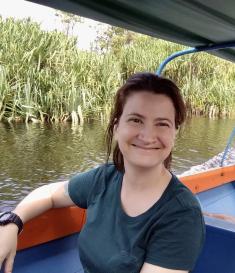
School: SEBS
Department: Human Ecology
Unit: New Brunswick
Award Type: Early Career Award
Project Description: Impacts from extreme weather events such as droughts and wildfires, along with changes in temperature and hydrological regimes, have dire repercussions for rural populations in Kalimantan, Indonesia, which rely on peatland forests and rivers for their survival. The situation has become critical after the 2015 and 2019 forest fires devastated much of the area. This project explores adaptive responses among riverine communities in Central Kalimantan to more persistent droughts, forest fires, and the increase in extreme days of heat. The proposal builds on an existing collaborations between Rutgers and two Indonesian universities (Universitas Nasional Indonesia, and Universitas GadjahMada). The project seeks to:- Identify impacts of past environmental threats to households
- Measure households’ diets (energy consumption; food frequency inventory; dietary interviews) and activities (energy expenditure; physical activity levels) across two seasons (wet and dry)
- Characterize households’ adaptive responses to past environmental threats (inventory activities and changes in work patterns)
- Work with community organizations to transition findings into recommendations
-

Zorimar Rivera-Nunez, Lead PI
School: Public Health
Department: Biostatistics and Epidemiology
Unit: RBHS
Award Type: Team Pilot Award
Team Members:
• Emily Barrett, PhD (Associate Professor, Biostatistics and Epidemiology, Rutgers School of Public Health)
• Brian Buckley, PhD (Executive Director, Environmental and Occupational Health Sciences Institute)
• Sheela Sathyanarayana, MD, MPH (Associate Professor of Pediatrics, Seattle Children's Hospital, University of Washington)
• Kelly Ferguson, PhD, MPH (Senior Investigator, NIEHS)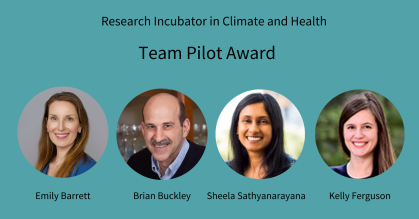
Project Description: Zearalenone (ZEN) is a fungal-derived mycotoxin that contaminates grain crops across the global food supply. The accumulation of ZEN and other mycotoxins in crops is one of the top emerging issues of environmental concern in the era of climate change. Mycotoxin growth is predicted to increase due to raising in temperatures, distribution of rainfall and humidity. Importantly, ZEN is a potent nonsteroidal estrogen receptor agonists (“mycoestrogens”) and in animal models, in utero exposure disrupts perinatal development, resulting in reduced fetal growth and birth weight. We will translate these findings to examine the impact of ZEN exposure in a human birth cohort. We will study ZEN exposure during the prenatal period and in childhood in relation to sex steroid hormones levels and child growth. -

School: Engineering
Department: Civil & Environmental Engineering
Unit: New Brunswick
Award Type: Early Career Award
Project Description: Climate change is causing extreme weather events such as heat waves and flash floods to occur more frequently and with greater severity, leading to public health risks and exacerbating social injustices. The risks associated with extreme weather events vary significantly, especially in urban areas where landscape, topology, and human activities contribute to high heterogeneity. However, monitoring infrastructure is lacking, particularly at small spatial scales (less than 100 m). To address the issue, this project will develop high-resolution urban weather sensing technology that utilizes optical fiber and 5G communication networks to provide micro-meteorological data to support real-time forecasting of public health hazards associated with climate change: 1) creating innovative urban weather sensing using the Distributed Optical-Fiber Sensing (DOFS) and 5G communication network to monitor temperature and humidity at the meter resolution and 2) developing real-time forecasting of heat waves and flash floods using the new sensing method. -
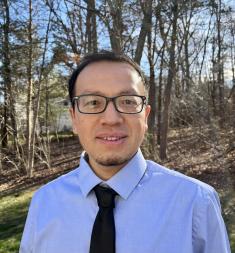
Shuo Xiao, Lead PI
School: Pharmacy
Department: Pharmacology and Toxicology
Unit: RBHS
Award Type: Team Pilot Award
Team Members:
• Lauren Aleksunes (Rutgers University School of Pharmacy)
• Nataki Douglas (Rutgers New Jersey Medical School)
• Qiang Zhang (Emory University School of Public Health)
• Hao Zhu (Rowan University)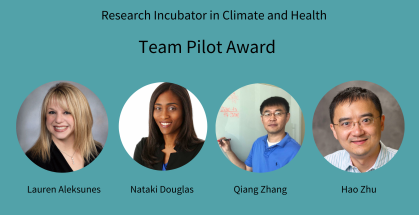
Project Description: Harmful algal bloom (HAB) toxin are emerging climate change and global temperature rise-related environmental contaminants. They are produced from cyanobacteria, also knowns as “blue-green algae”, in both marine and freshwaters. Humans are exposed to high levels of HAB toxins from drinking water, food, and recreational activities, particularly during bloom seasons. Accumulating evidence shows that exposure to HAB toxins can adversely impact human health, such as liver cancer and neural toxicity. In this study, our team will study the reproductive toxic effects and mechanisms of microcystins, the most common HAB toxins. This research is greatly important for us evaluate the risk of exposure to HAB toxins on women’s reproductive health, such as menstrual cycles, reproductive diseases, and fertility, as well as to speed up the development of prevention, mitigation, and remediation methods to protect female reproductive health.
